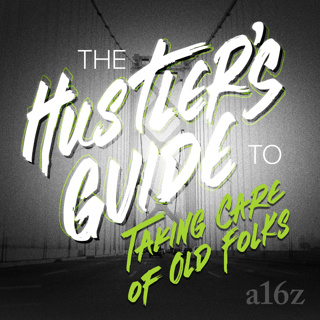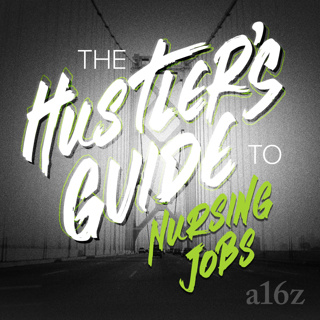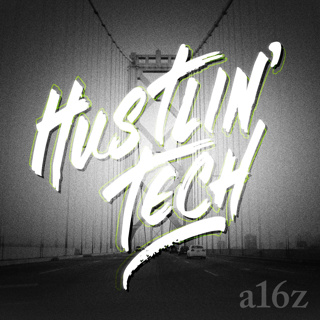
Gaming and Livestreaming: Connecting While Distancing
Since social distancing measures were first put in place, time spent gaming has gone up—way up. According to a recent report by Verizon, video game usage in the U.S. has risen 75 percent during peak hours. The "stay at home" movement has given way to an upswell of new and returning gamers—as well as new challenges, as online platforms struggle to keep up with the surge.In this episode, a16z partner Jon Lai joins host Lauren Murrow to talk about how game developers are grappling with skyrocketing numbers, why this may be an inflection point for VR, the surprising transition of professional sports into esports, and why live-streaming is having its moment. Stay Updated:Find a16z on XFind a16z on LinkedInListen to the a16z Podcast on SpotifyListen to the a16z Podcast on Apple PodcastsFollow our host: https://twitter.com/eriktorenberg Please note that the content here is for informational purposes only; should NOT be taken as legal, business, tax, or investment advice or be used to evaluate any investment or security; and is not directed at any investors or potential investors in any a16z fund. a16z and its affiliates may maintain investments in the companies discussed. For more details please see a16z.com/disclosures. Hosted by Simplecast, an AdsWizz company. See pcm.adswizz.com for information about our collection and use of personal data for advertising.
2 Apr 202018min

The Hustlers's Guide to Suing the Man
This is the next cycle (Q1 2020) of Hustlin' Tech, a podcast series (from the a16z Podcast) about technology platforms that create opportunities for people. Recorded right before the coronavirus pandemic, these next 3 episodes touch on many things that are top of mind right now: from the profession of nursing and taking care of the elderly and the professionalization of caregivers; to fighting bureaucracy to get money back (and to now get help delaying utility bills and rent payments that are eligible for an extension or waiver of late fees due to the coronavirus crisis).Episode #6, “The Hustler’s Guide to Suing the Man” features:Joshua Browder, CEO and founder of DoNotPay, the world's first "robot lawyer" which helps people automatically fight bureaucracy to get money back, whether parking tickets or hidden bank fees; find other hidden money or cancel free trials; sue others or go to small claims court -- and now also helps people delay utility bills and rent payments that are eligible for an extension or waiver of late fees due to the coronavirus crisis.Makiri Duckett, a small business owner who currently operates an adult on-demand delivery service (and therefore gets frequent parking tickets) and is a power user of the platform;...both interviewed by Ben Horowitz and Shaka Senghor.You can find the first cycle of this series (Q4 2019) -- including more about the what and the why -- here. Stay Updated:Find a16z on XFind a16z on LinkedInListen to the a16z Podcast on SpotifyListen to the a16z Podcast on Apple PodcastsFollow our host: https://twitter.com/eriktorenberg Please note that the content here is for informational purposes only; should NOT be taken as legal, business, tax, or investment advice or be used to evaluate any investment or security; and is not directed at any investors or potential investors in any a16z fund. a16z and its affiliates may maintain investments in the companies discussed. For more details please see a16z.com/disclosures. Hosted by Simplecast, an AdsWizz company. See pcm.adswizz.com for information about our collection and use of personal data for advertising.
1 Apr 202028min

The Hustler's Guide to Elder Care
This is the next cycle (Q1 2020) of Hustlin' Tech, a podcast series (from the a16z Podcast) about technology platforms that create opportunities for people. Recorded right before the coronavirus pandemic, these next 3 episodes touch on many things that are top of mind right now: from the profession of nursing; to taking care of the elderly; to fighting bureaucracy to get money and time back (and to get help delaying utility bills and rent payments that are eligible for an extension or waiver of late fees due to the coronavirus crisis).Episode #5, “The Hustler’s Guide to Taking Care of Old Folks” features:Seth Sternberg, CEO and co-founder of Honor, a home care company and national network of local home care agencies that brings high-touch, personalized care to elders while also scaling workforce management; matching special needs, skills, and unique demands; and offering tools that help caregivers with jobs and more.Samantha Ludwig, a care professional who has always had a job thanks to Honor (and who journeyed from abroad as a foreign nurse);...both interviewed by Ben Horowitz and Shaka Senghor.You can find the first cycle of this series (Q4 2019) -- including more about the what and the why -- here. Stay Updated:Find a16z on XFind a16z on LinkedInListen to the a16z Podcast on SpotifyListen to the a16z Podcast on Apple PodcastsFollow our host: https://twitter.com/eriktorenberg Please note that the content here is for informational purposes only; should NOT be taken as legal, business, tax, or investment advice or be used to evaluate any investment or security; and is not directed at any investors or potential investors in any a16z fund. a16z and its affiliates may maintain investments in the companies discussed. For more details please see a16z.com/disclosures. Hosted by Simplecast, an AdsWizz company. See pcm.adswizz.com for information about our collection and use of personal data for advertising.
1 Apr 202036min

The Hustler's Guide to Nursing Jobs
This is the next cycle (Q1 2020) of Hustlin' Tech, a podcast series (from the a16z Podcast) about technology platforms that create opportunities for people. Recorded right before the coronavirus pandemic, these next 3 episodes touch on many things that are top of mind right now: from the profession of nursing; to taking care of the elderly; to fighting bureaucracy to get money and time back (and to get help delaying utility bills and rent payments that are eligible for an extension or waiver of late fees due to the coronavirus crisis).Episode #4, “The Hustler’s Guide to Nursing Jobs” features:Iman Abuzeid, MD, CEO and co-founder of Incredible Health, a hiring platform for nurses in the U.S. used by hospitals and health systems that helps hospitals find nurses faster, offers free continuing education to nurses everywhere, and puts nurses at the center.Stephanie Anyanwu, RN, who found her nursing job on the platform and also journeyed to the U.S. from abroad;...both interviewed by Ben Horowitz and Shaka Senghor.You can find the first cycle of this series (Q4 2019) -- including more about the what and the why -- here. Stay Updated:Find a16z on XFind a16z on LinkedInListen to the a16z Podcast on SpotifyListen to the a16z Podcast on Apple PodcastsFollow our host: https://twitter.com/eriktorenberg Please note that the content here is for informational purposes only; should NOT be taken as legal, business, tax, or investment advice or be used to evaluate any investment or security; and is not directed at any investors or potential investors in any a16z fund. a16z and its affiliates may maintain investments in the companies discussed. For more details please see a16z.com/disclosures. Hosted by Simplecast, an AdsWizz company. See pcm.adswizz.com for information about our collection and use of personal data for advertising.
30 Mars 202037min

Hustlin' Tech, Round Two
This is the next cycle of Hustlin' Tech -- a podcast series co-hosted by bestselling authors, a16z co-founder Ben Horowitz; and Shaka Senghor, a leading voice in criminal justice reform. Each episode is a "Hustler's Guide" to a new technology platform that creates opportunity for people. We previously released 3 episodes in this series last quarter, and this quarter are releasing 3 new episodes that follow in this feed, over the next few days. These episodes were all recorded right before the coronavirus pandemic. However, given what's going on in the world, they touch on many things that are top of mind right now: from the profession of nursing (including online communities and free continuing education from home); to taking care of the elderly (many of whom live alone or need other in-home assistance); and fighting bureaucracy to get money back -- or to get help delaying utility bills and rent payments that are eligible for an extension or waiver of late fees due to the crisis:#4 The Hustler's Guide to Nursing Jobs#5 The Hustler's Guide to Taking Care of Old Folks#6 The Hustler's Guide to Suing the Man You can read more about the what and the why of the entire Hustlin Tech series -- and sign up to be notified about future episodes -- here. Stay Updated:Find a16z on XFind a16z on LinkedInListen to the a16z Podcast on SpotifyListen to the a16z Podcast on Apple PodcastsFollow our host: https://twitter.com/eriktorenberg Please note that the content here is for informational purposes only; should NOT be taken as legal, business, tax, or investment advice or be used to evaluate any investment or security; and is not directed at any investors or potential investors in any a16z fund. a16z and its affiliates may maintain investments in the companies discussed. For more details please see a16z.com/disclosures. Hosted by Simplecast, an AdsWizz company. See pcm.adswizz.com for information about our collection and use of personal data for advertising.
30 Mars 20201min

Security When the Workforce Goes Remote
We are in the midst of a rapid and unprecedented shift to remote work. What does it mean for security when the airgap between work and life is gone? How prepared are organizations? And what should security professionals as well as individual workers be doing to protect themselves and their companies?In this podcast, a16z security expert Joel de la Garza breaks down the current risks and how to defend against them. But beyond just immediate security needs, he explains what bigger transformations may be happening, most notably a shift from the traditional hub-and-spoke, point to point, security architectures to a more distributed approach to workloads as well as trust. Stay Updated:Find a16z on XFind a16z on LinkedInListen to the a16z Podcast on SpotifyListen to the a16z Podcast on Apple PodcastsFollow our host: https://twitter.com/eriktorenberg Please note that the content here is for informational purposes only; should NOT be taken as legal, business, tax, or investment advice or be used to evaluate any investment or security; and is not directed at any investors or potential investors in any a16z fund. a16z and its affiliates may maintain investments in the companies discussed. For more details please see a16z.com/disclosures. Hosted by Simplecast, an AdsWizz company. See pcm.adswizz.com for information about our collection and use of personal data for advertising.
27 Mars 202021min

The Delivery-Optimized Future of Food
The spike in online ordering and food delivery—a trend that's particularly relevant now—is evidence of how tech is fundamentally changing how and what we eat. Is this the end of the traditional restaurant experience as we know it?In this conversation between Virtual Kitchen Co. CEO Ken Chong, Snackpass CEO Kevin Tan, a16z general parter Andrew Chen, and host Lauren Murrow, we discuss what's driving this transformation, the infusion of data into the restaurant industry, how take-out and delivery is becoming surprisingly social, and the specter of the "kitchenless home."Virtual Kitchen Co. is a network of delivery-only kitchens that partners with restaurants to expand their reach without opening additional brick-and-mortar locations. Snackpass is a food-ordering app currently on college campuses in which customers can order ahead at restaurants and skip the line. In this discussion, both CEOs explain what their business models could mean for the future of dining and cooking.This episode was recorded on-site at the a16z Summit in November 2019. Stay Updated:Find a16z on XFind a16z on LinkedInListen to the a16z Podcast on SpotifyListen to the a16z Podcast on Apple PodcastsFollow our host: https://twitter.com/eriktorenberg Please note that the content here is for informational purposes only; should NOT be taken as legal, business, tax, or investment advice or be used to evaluate any investment or security; and is not directed at any investors or potential investors in any a16z fund. a16z and its affiliates may maintain investments in the companies discussed. For more details please see a16z.com/disclosures. Hosted by Simplecast, an AdsWizz company. See pcm.adswizz.com for information about our collection and use of personal data for advertising.
25 Mars 202018min

Remote Work and Our New Reality
Stay Updated:Find a16z on XFind a16z on LinkedInListen to the a16z Podcast on SpotifyListen to the a16z Podcast on Apple PodcastsFollow our host: https://twitter.com/eriktorenberg Please note that the content here is for informational purposes only; should NOT be taken as legal, business, tax, or investment advice or be used to evaluate any investment or security; and is not directed at any investors or potential investors in any a16z fund. a16z and its affiliates may maintain investments in the companies discussed. For more details please see a16z.com/disclosures. Hosted by Simplecast, an AdsWizz company. See pcm.adswizz.com for information about our collection and use of personal data for advertising.
23 Mars 202019min






















